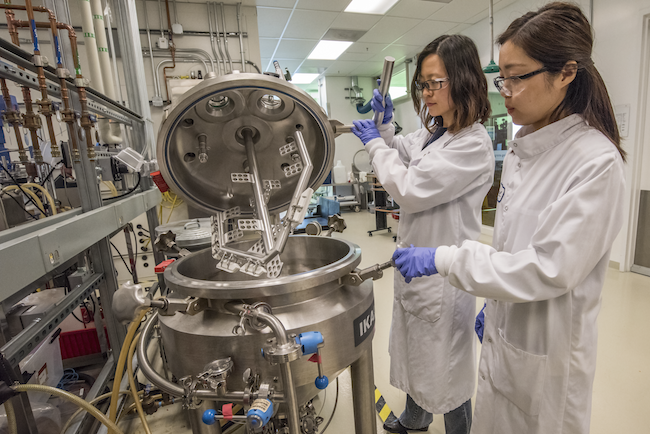
Fabricated ecosystems hold promise for replicating important ecosystem dynamics while simultaneously streamlining studies by defining testable and important parameters using reproducible techniques. The Biosciences Area and collaborating institutions are using these systems to define principles for community assembly and structure; understand the functions of genes, microbes, and metabolomes; and predict microbiome health and trajectory. By advancing our understanding of microbiome structure and function, significant scientific and technical advances can be made in studies of environmental sciences, ecology, energy, and nutrient cycling.

The BioManufactory focuses on processes for renewable energy generation, biomanufacturing of molecules that do not depend on fossil-fuel inputs, engineered microbiomes that promote plant growth and reduce dependence on chemical inputs, and applications that protect the environment for future generations. Additional applications include new antibiotic discovery, and development of new food and feed technologies. Industry partner project requirements — from early-stage discovery to commercialization — can be accomplished through the The BioManufactory at Berkeley Lab.



